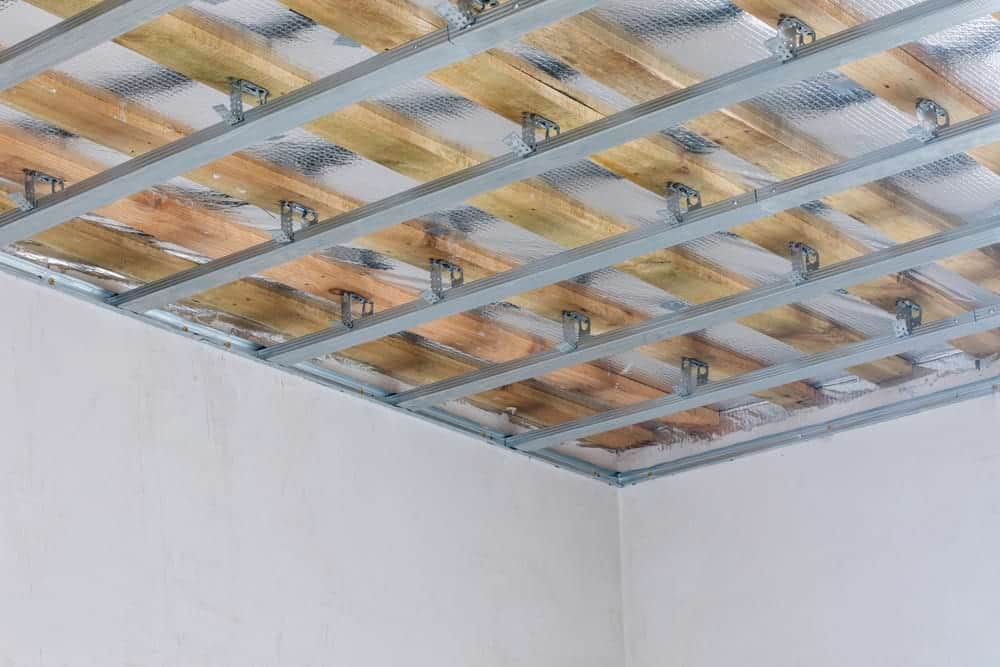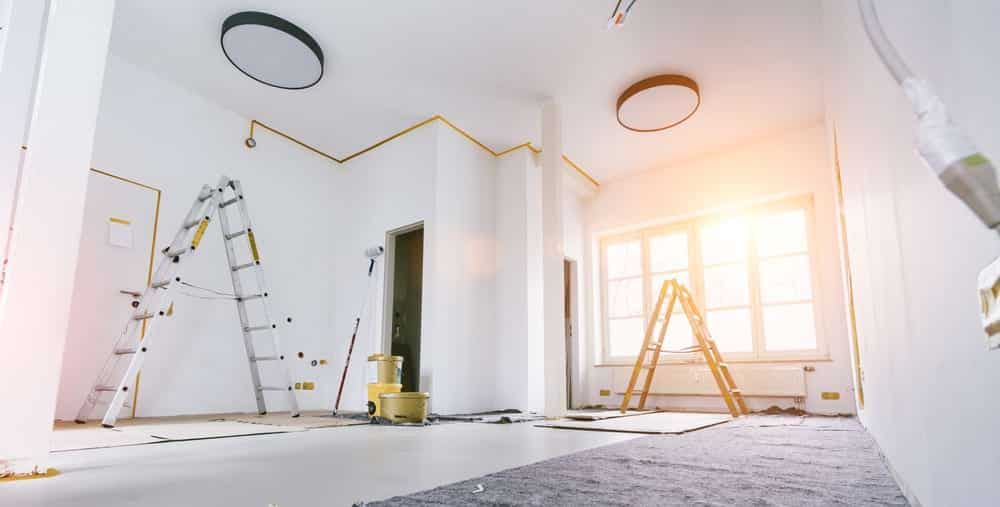Flats come with many pros and cons.
The latter includes noise from noise from neighbouring properties.
One of the most common sources of this is noise from ceilings.
So, can you soundproof ceilings in flats? If so, how can you do this? And how effective is it?
Sources of ceiling noise
Ceiling noise is common in flats.
Most of the time, it’s brief and takes place during reasonable hours. Many residents might not even notice it.
However, other times, it’s persistent and occurs at anti-social times. This can seriously disrupt people’s sleep and right to quiet enjoyment.
Noise passing through the ceiling is often unintentional and can be caused by many things:
- Walking in shoes on hard surfaces
- Music and television being played loud
- Babies crying
- Children playing (dropping objects, kicking balls, etc.)
- Loud conversations or arguments
- Loud pets
And more.
Of course, the issue might be problem neighbours. If these are tenants, you may have to speak to their landlord. If they own the flat, you may have to consider legal action.
The location and type of flat you are in can make a big difference to the likelihood of noise from the ceiling.
For example, in Britain, blocks of flats in city centres are more likely to be noisy than flats in smaller buildings in the suburbs and rural areas.
Flanking transmission
Sometimes, noises sound like they are coming through the ceiling when they are not.
This can be caused by sound travelling through walls, beams, pipes, etc. in other flats. This is called flanking transmission.
Preventing it can be more complicated than soundproofing ceilings. It may involve adding sound isolation clips or creating layers between floors.
Soundproof a ceiling: Considerations and options
Get permission
Your ability to modify your flat depends partly on whether you are a tenant or an owner.
If you are an owner, your flat’s status as a freehold or leasehold also matters. The former gives you more control over the changes you make.
Check compliance
However you decide to soundproof your ceiling, you must ensure it complies with building regulations.
These cover everything from materials to structural integrity, electrical installations, and more.
Ignoring them can endanger your own life or that of those of your neighbours.
Adding materials to your ceiling
There are several different materials you can add to your ceiling.
Sometimes, adding a separate drywall (plasterboard) is enough. This creates more mass to absorb sound waves.
You can also add more specialist soundproof materials between the drywall and the original ceiling, such as:
- Mineral wool (also known as rockwool)
- Acoustic plasterboard: A denser type of plaster with added gypsum and other materials
- Mass-loaded vinyl (MLV): A flexible, soundproofing material with a PVC base and mineral fillers.
Soundproofing your neighbour’s floor
It may be more effective and cheaper to alter your neighbour’s floor rather than your ceiling.
Rugs or carpets rather than hard flooring could be enough. However, persuading them to pay for this won’t be easy.
And there’s always the possibility they – or someone else who moves into their flat – changes their flooring.
They might be more willing to have underlay installed under the floor surface.
It might only be needed in one section of their flat. You will likely have to pay for this – however, it can be well worth it for the quiet it can bring.
Changing light fittings
Your current light fittings might be contributing to your problem.
Some create gaps in ceilings where sound can get through. Getting these replaced with different types of light fittings solves this.
Moving out!
One way to solve the problem is by moving away…
This is often the best choice for renters whose neighbour isn’t compliant.
It may be for homeowners in the same situation, too. After all, you might not have the funds to make the physical alterations needed to solve the problem.
If you do sell, you must disclose the issue to your buyers. Otherwise, you could be opening yourself up to being sued. This will likely reduce the value of your flat.
Selling your flat fast
Flats can take an average of 150 days to sell.
Living in a flat with noisy neighbours can make waiting this long unappealing…
If you would like to sell your flat fast, a cash buyer like We Buy Any Home can help. We can buy any flat in any location, condition and time frame (including as little as 7 days).
Get in touch for a free, no-obligation quote today.



















